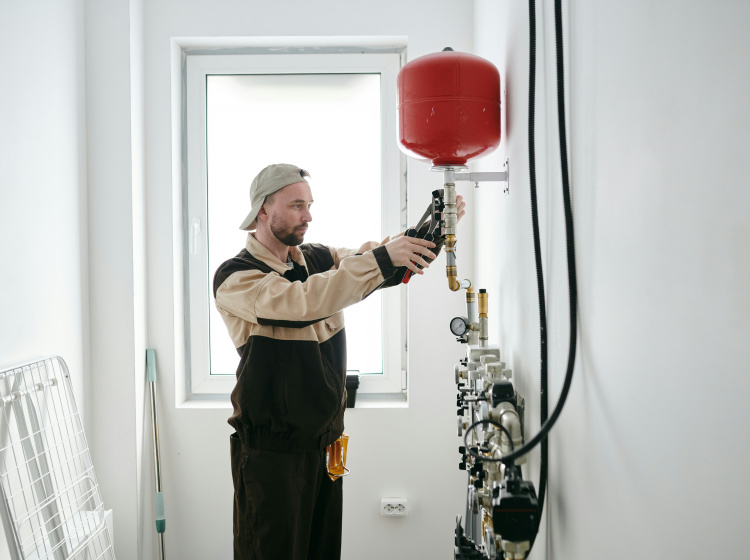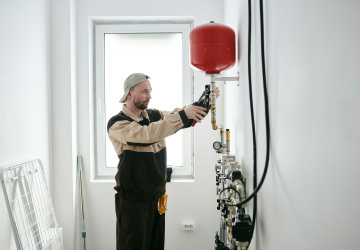Gas heating must be inspected by the end of September, otherwise, there is a risk of a fine exceeding one hundred thousand. However, people ignore the regulation
The regulation requiring the so-called hydraulic balancing of the heating system for gas heating began to apply in Germany last year for buildings with more than ten residential units. However, this year it also began to apply to smaller buildings. The Germans still ignore it.
In Germany, the obligation to carry out so-called hydraulic balancing of heating systems, particularly for gas boilers in buildings with more than ten residential units, has come into effect. This regulation, which is part of the government's plan to improve energy efficiency, aims to reduce energy consumption and ensure an even distribution of heat within buildings. Property owners who do not carry out this operation risk high fines. Nevertheless, it appears that many Germans are ignoring the new rules.
Hydraulic balancing is a technical procedure that ensures that hot water in the heating system is distributed evenly to all radiators in the house. Without this adjustment, some parts of the house may be overheated while other rooms suffer from a lack of heat. Unbalanced systems not only reduce living comfort but also increase energy consumption, leading to higher heating costs and excessive strain on the heating system.
The new German regulation stipulates that all buildings with more than ten residential units must undergo hydraulic balancing. For smaller buildings, the same obligation applies at later dates. The process should be carried out by a qualified technician who ensures that the system functions optimally. Currently, there is also a regulation requiring inspection for houses with more than six residential units, which came into effect on September 15.
The regulation requiring the so-called hydraulic balancing of the heating system for gas heating began to apply in Germany last year for buildings...
The deadline for completing the balancing in buildings with more than ten apartments was set for September 30, 2023, and for those with six units, it was Sunday, September 15. If property owners fail to meet this obligation, they face fines of up to 5,000 euros (approximately 125,000 CZK). The fine applies to each individual property, which can result in significant financial penalties for larger owners with multiple properties.
Despite the looming penalties, it appears that many Germans are ignoring this regulation. Reports indicate that some property owners are either unaware of their obligations under the new regulation or do not take them seriously. Some are concerned that hydraulic balancing will incur high costs, while others doubt its actual benefits.
Another common argument against the regulation is the complexity and technical challenges associated with the balancing process. For older heating systems, implementation can be more demanding and require substantial modifications, which deters some owners. There are also significant concerns about a lack of qualified technicians who can perform the balancing, which has in many cases resulted in missed deadlines.
Despite the skeptical reactions from the public, hydraulic balancing is crucial for ensuring the efficiency of heating systems. In addition to reducing energy consumption, it provides better heat distribution and reduces equipment wear. In the long term, it should lead to savings in operating and maintenance costs of heating systems, in line with Germany's goals of reducing energy consumption.
Despite existing resistance from parts of the public, it is expected that the German government will insist on compliance with this regulation. Similar measures may be introduced in other European countries striving to achieve energy efficiency and reduce fossil fuel consumption.
Property owners who have not yet carried out hydraulic balancing have the option to take advantage of various grant programs and state subsidies (currently, the contribution is around only 15%) that should help them finance this process. With this step, Germany aims not only at better energy efficiency but also at reducing dependency on fossil energy sources, which is a key factor in combating climate change.










